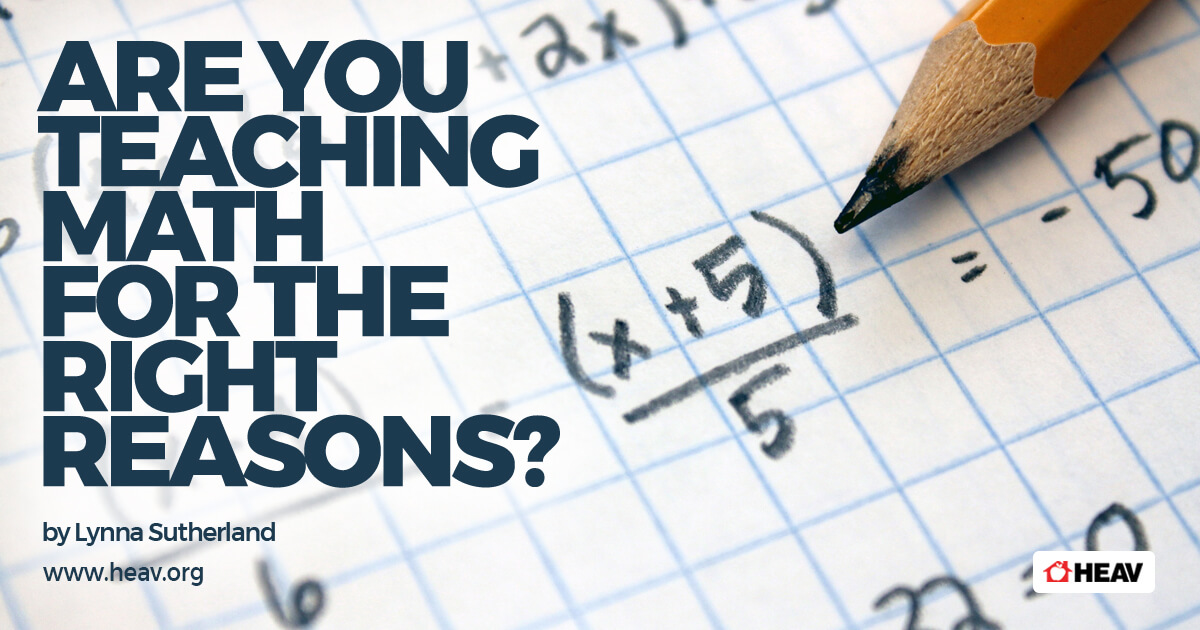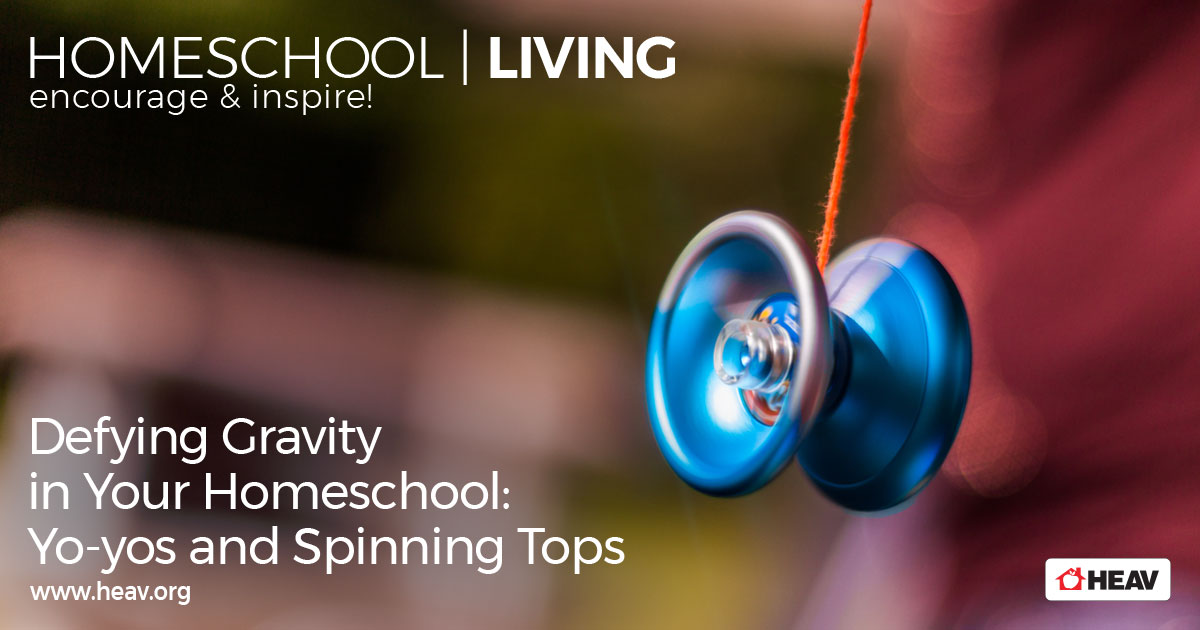Are You Teaching Math for the Right Reason?
By Lynna Sutherland
Most homeschool families make math learning and math work a priority in their homeschool day. Even if other things have to fall by the wayside, they make sure that math gets done.
Most homeschool moms have faced the blank stares, the sighs of discontent, and the “Why do we have to learn this?” questions. How you answer that question (both in your own mind and out loud to your children) could make all the difference in your homeschool.
Math as a Civic Duty
We might not have a clear idea of why we study art history, or what the importance of poetry is in our homeschool day, but the importance of math seems pretty cut and dry. Of course you have to know math in order to be a responsible and productive adult.
Adults have to calculate the costs of things, including discounts and coupons. Adults have to measure fabric, lumber, and children. Adults have to count to make sure all the kids are in the van and they aren’t leaving anyone behind on the playground.
Certainly we can point to lots of real-world examples and applications of math in general. But what about particular concepts or topics?
Where the Strategy Breaks Down
The math-as-a-civic-duty reasoning only takes you so far. I’ll be honest, as an adult, I’ve never, ever needed to calculate the volume of a pentagonal prism. And if one of my kids asked my why they’d need to know that, I’d be pretty hard pressed to come up with an answer.
Yes, there are careers and situations where understanding of this concept (or others like it) is relevant. But is it something everybody has to know and study? You know, just in case they grow up to design swimming pools with pentagonal end faces?
Studies have shown that as few as 5% of the workforce will ever use anything they learned in algebra or beyond. And most adults who use mathematics are not performing rudimentary calculations in their mind – that work is performed by calculators or spreadsheets.
So Should We Ditch Math?
Before you leave upset comments below, hear me out. I’m not arguing against math. I just want us to explore it for the right reasons.
Math is important because it is a study of the order and design God placed into our universe. Digging into mathematical concepts is a way to revel in and stand in awe of God’s handiwork – his fingerprint in every corner.
If you’re stuck in a rut with math, it may be time to switch to a different curriculum, or to ditch the textbook altogether (at least for a while) so that “doing math” doesn’t crowd out any time you could be spending “admiring math”.
A Few Practical Tips
So, if you step back from the way you were doing math, even for a time, what should you do instead? Here are just a few suggestions!
One of our all-time favorite ways to explore math is through board gaming. And I’m not talking about educational games that are called something like Multiplication Pony Party. I’m talking about actual best-selling board games that cultivate a true hands-on understanding of math ideas. Here are some of our favorites.
Watch some YouTube videos that approach math from a “how cool is this?!?” perspective. Here are some channels we love:
*Note: These channels both approach life from a secular/evolutionary worldview. We take this as an opportunity to talk about what these same truths tell us about God and how we should view them through a Biblical worldview. But you’ll have to decide for yourself if this is right for your family. (If you know of a channel that explores the wonders of math as an evidence of God’s beauty in creation, please comment below!)
Read a book about the history of mathematics or the biography of a great mathematician. You might try “String, Straight-edge and Shadow: The Story of Geometry” by Julia Diggins or “A Piece of the Mountain: the Story of Blaise Pascal” by Joyce Mcpherson.
Or, try “The Puzzling World of Winston Breen” by Eric Berlin, a story interspersed with puzzles! There are plenty of books that teach math concepts, like the Sir Cumference series by Cindy Neuschwander or the Math is CATegorical poetry books by Brian Cleary.
Instead of traditional math worksheets, try some brain-teasers or logic puzzles. These are still exercising the very “mental muscles” needed to understand and do math, but can be a welcome change from regular work. There are lots of options at The Critical Thinking Company!
Is it possible to get out of bed in the morning looking forward to “math class”? It sure is! Come join us over at Homeschooling without Training Wheels to learn more about how we celebrate and enjoy math in our homeschool!
Lynna Sutherland blogs at Homeschooling Without Training Wheels, where she loves to remind moms (and herself!) of the freedom and flexibility that come with homeschooling! Lynna and her husband have seven children. The motto of their homeschool is “Wisdom Is the Principal Thing” from Proverbs 4:7. You can also find Lynna on Facebook and Pinterest. Lynna hosts a private Facebook group called Family Schooling without Training Wheels specifically for encouraging parents in multi-age homeschooling and outside-the-box approaches to meet the needs of their unique family.









